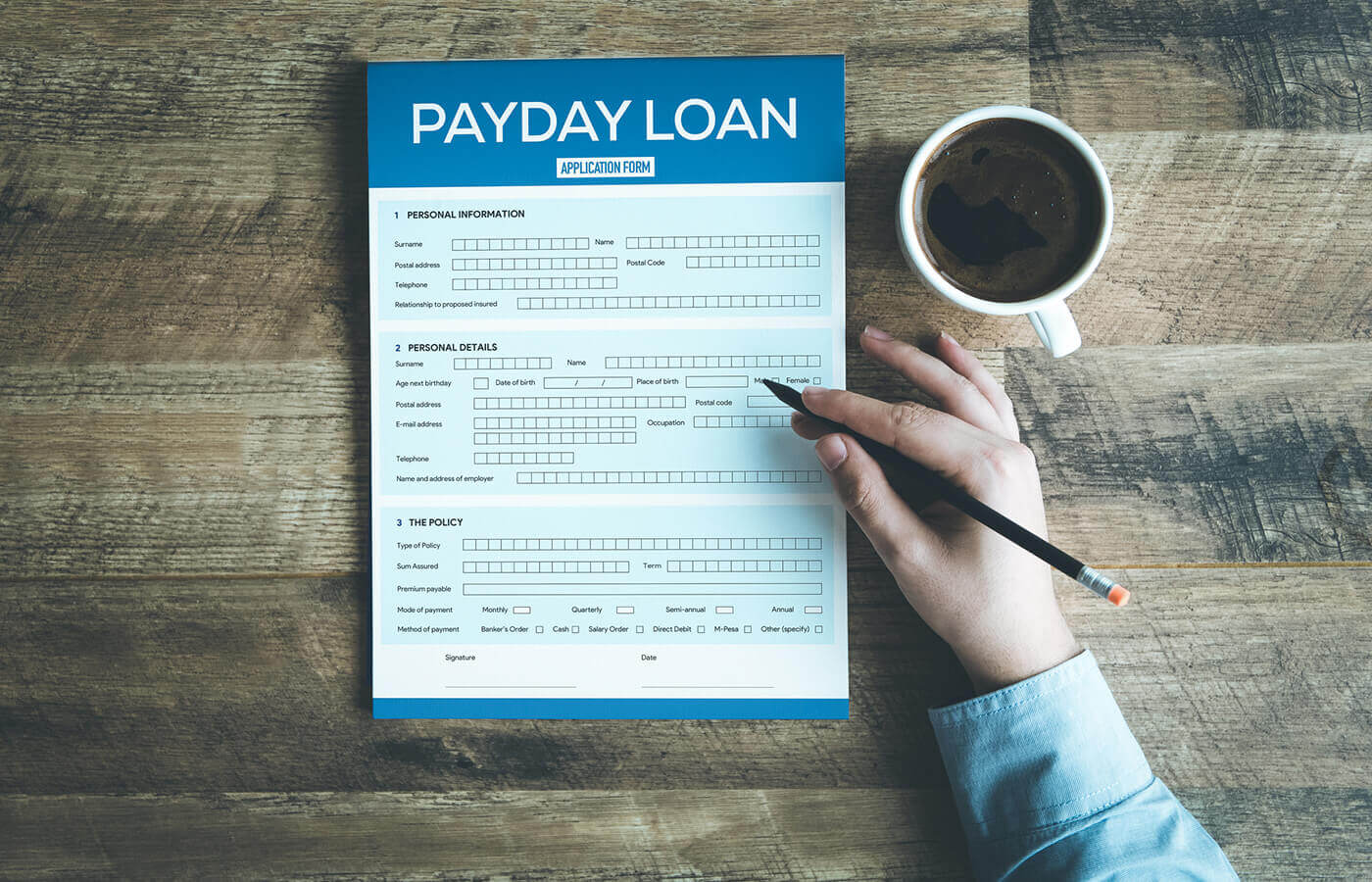A clear guide to understanding Cash Loans and their advantages
A Comprehensive Guide to Home Loans: Provider and Options Explained
Charting the globe of home mortgage can be intricate. Different choices exist, each with one-of-a-kind functions and effects for potential property owners. Recognizing the differences between traditional and government-backed finances is important. The application process includes careful paperwork and pre-approval steps that many ignore. As debtors begin on their home-buying trip, knowing how to manage these responsibilities successfully can mean the difference in between economic stability and challenge. What strategies can encourage them on this course?
Comprehending Home Loans: Types and Terms
Recognizing the numerous kinds of home financings and their connected terms is vital for potential property owners, as it outfits them with the understanding needed to make informed economic decisions. Home finances can be generally categorized into adjustable-rate and fixed-rate mortgages. Fixed-rate home mortgages maintain a consistent rates of interest over the life of the finance, supplying stability in regular monthly payments. Cash Advance. Conversely, variable-rate mortgages include rates of interest that might fluctuate after a first fixed duration, potentially bring about reduced preliminary settlements however raised future expenses
Additional terms is very important for quality. Principal refers to the finance amount obtained, while passion is the expense of borrowing that quantity. The regard to the funding shows its duration, generally varying from 15 to three decades. Comprehending these basic principles makes it possible for potential purchasers to navigate the complex landscape of home funding, guaranteeing they choose the ideal finance option that lines up with their economic circumstance and long-lasting objectives.
Standard Financings vs. Government-Backed Loans
A significant difference in home funding exists between government-backed financings and conventional car loans, each dealing with various borrower needs and situations. Traditional fundings are not insured or guaranteed by the government and commonly call for greater credit history and down settlements. They are typically interesting consumers with stable economic backgrounds, as they may use competitive rates of interest and terms.
On the other hand, government-backed car loans, such as FHA, VA, and USDA fundings, are developed to assist details teams of borrowers, consisting of newbie buyers and experts. Cash Advance. These lendings generally include lower down payment needs and even more flexible debt criteria, making them available to a wider series of people
Eventually, the selection in between traditional and government-backed car loans pivots on the debtor's economic circumstance, long-lasting objectives, and eligibility, making it vital to very carefully examine both options prior to making a decision.

The Role of Rate Of Interest Prices in Home Financing
Rates of interest play an important duty in home financing, affecting customers' choices in between variable and set price finances. The option between these choices can greatly influence regular monthly payments, affecting overall price. Comprehending how rates of interest work is important for any person navigating with the mortgage procedure.
Repaired vs. Variable Rates
Homebuyers face an important decision when selecting in between taken care of and variable prices, as this option considerably impacts the expense of financing with time. Fixed-rate home mortgages offer stability, securing a rates of interest for the life of the car loan, which can be beneficial in a climbing rates of interest atmosphere. This predictability allows house owners to spending plan much more efficiently. Alternatively, variable-rate mortgages, or variable-rate mortgages (ARMs), generally begin with lower initial prices that can fluctuate based on market conditions. While this might result in reduced initial payments, customers deal with the risk of enhanced rates in the future. Eventually, the option in between fixed and variable rates depends upon individual monetary circumstances, threat tolerance, and expectations relating to future interest price patterns.
Impact on Regular Monthly Settlements
When evaluating home funding options, the effect of rates of interest on month-to-month settlements is a key factor to contemplate. Rates of interest directly affect the total expense of borrowing, influencing just how much a borrower will pay monthly. A reduced rate of interest rate lead to smaller sized monthly repayments, making homeownership a lot more affordable. Conversely, higher rates can considerably boost regular monthly obligations, possibly stressing a house owner's budget. In addition, the lending term plays a vital function; longer terms may spread out repayments out but can lead to paying even more rate of interest over time. Recognizing exactly how rate of interest rates communicate with lending quantities and terms is important for customers to make informed monetary choices and choose a home loan that lines up with their long-lasting economic objectives.
Home Mortgage Brokers vs. Direct Lenders: Which Is Right for You?
When considering a mortgage, possible customers must recognize the unique functions and responsibilities of home loan brokers and straight loan providers. Each option presents its very own benefits and negative aspects, which can considerably affect the total cost of financing. An educated choice needs cautious evaluation of these elements to establish the most effective suitable for private requirements.
Obligations and roles Specified
Navigating the complexities of home financing requires a clear understanding of the roles and obligations of mortgage brokers and straight lending institutions. Mortgage brokers serve as middlemans, attaching consumers with lending Installment Loans institutions. They assess a consumer's monetary circumstance, curate funding alternatives, and overview customers via the application procedure, frequently leveraging multiple loan provider partnerships to safeguard desirable terms. On the other hand, direct lenders, such as banks and cooperative credit union, provide fundings directly to customers. They deal with the entire finance procedure, from application to funding, with a concentrate on their own items. Each alternative presents unique opportunities for getting financing, making it crucial for borrowers to evaluate their requirements and preferences when deciding in between involving a home mortgage broker or functioning with a direct lender.
Advantages and disadvantages Contrast
Picking between a mortgage broker and a direct lender can greatly influence the home funding experience, as each option offers one-of-a-kind advantages and drawbacks. Home mortgage brokers act as intermediaries, providing accessibility to multiple lenders and possibly much better rates, while streamlining the funding procedure. However, they may charge costs and count on payment structures that might affect their recommendations. On the other hand, straight lending institutions simplify the process by providing internal car loans, which can result in quicker authorizations and fewer complications. Alternatively, they may have a restricted option of products and much less flexibility concerning pricing. Eventually, the choice hinges on specific preferences, monetary situations, and the preferred degree of assistance throughout the mortgage trip.
Price Implications Examined
While reviewing the price ramifications of home mortgage brokers versus straight lenders, potential house owners have to take into consideration various factors that can considerably impact their total expenses. Home loan brokers typically charge costs for their solutions, which can vary considerably, affecting the total funding cost. Nevertheless, they often have accessibility to a wider series of financing items and affordable prices, possibly conserving consumers money in the future. Alternatively, direct lenders may offer an extra straightforward process with possibly reduced upfront expenses, yet their finance alternatives might be limited. It is necessary for home owners to contrast rates of interest, costs, and terms from both loan providers and brokers, ensuring they make an informed choice that lines up with their monetary goals and needs.
The Home Mortgage Application Refine: What to Expect

The home mortgage application procedure can often really feel intimidating for numerous candidates. It normally starts with gathering required documentation, including evidence of revenue, credit report, and individual recognition. Lenders utilize this details to assess the candidate's economic security and determine funding qualification.
Next off, candidates send an official application, which might entail filling in on the internet kinds or giving details face to face. During this stage, lending institutions review different variables, such as debt-to-income proportion and credit report, to pick funding terms.
As soon as pre-approved, the lending institution will perform an extensive evaluation of the building to identify its value straightens with the funding amount. This stage may likewise include extra history checks.

After last approvals and problems are satisfied, the funding is refined, causing the closing stage. Recognizing each step empowers candidates, making the journey smoother and more convenient as they approach homeownership.
Tips for Managing Your Mortgage Properly
Successfully navigating the home mortgage application process is just the beginning of a responsible financial journey. Handling a home mortgage requires focus to numerous crucial methods. First, customers need to establish a clear spending plan that fits month-to-month home mortgage settlements, property tax obligations, and insurance. On a regular basis examining this budget aids protect against overspending and warranties timely payments.
Furthermore, making added settlements when feasible can considerably minimize the loan principal and overall rate of interest paid over time. Customers need to also maintain open lines of communication with their loan provider, especially in times of economic trouble. This can result in possible remedies such as car loan modifications or re-financing alternatives.
Ultimately, it is recommended to keep track of credit rating regularly. A great credit history can provide opportunities for far better car loan terms in the future. Fast Cash. By following these tips, home owners can navigate their car loan responsibilities effectively, guaranteeing lasting economic health and wellness and stability
Frequently Asked Inquiries
What Are Closing Costs and Exactly How Are They Calculated?
Closing prices incorporate charges related to completing a home mortgage, consisting of evaluation, title insurance coverage, and car loan origination costs. These prices commonly range from 2% to 5% of the lending quantity, varying based upon place and lender.
Can I Receive a Home Financing With Bad Credit History?
Yes, individuals with negative credit can get a mortgage, though options might be restricted. Lenders usually need greater down repayments or rate of interest, and checking out government-backed financings might improve opportunities of authorization.
What Is Home mortgage Insurance and When Is It Needed?
Home loan insurance policy safeguards lenders versus default and is generally needed when a customer makes a deposit of much less than 20%. It assures that lenders recuperate losses if the debtor stops working to pay off the funding.
Just How Does Refinancing Job and When Should I Consider It?
Refinancing entails replacing a current home loan with a brand-new one, typically to safeguard a reduced rate of interest or modification car loan terms. Home owners must take into consideration refinancing when rates of interest go down substantially or their monetary situation boosts.
What Takes place if I Miss a Home Loan Repayment?
If a mortgage payment is missed out on, the lending institution typically evaluates late costs, reports the delinquency to credit scores bureaus, and might start foreclosure procedures if repayments proceed to be ignored, at some point endangering the property owner's residential property.
Fixed-rate home mortgages preserve a consistent rate of interest rate over the life of the financing, giving security in monthly settlements. A substantial difference in home funding exists between conventional loans and government-backed financings, each providing to various consumer demands and scenarios. In contrast, government-backed loans, such as FHA, VA, and USDA loans, are made to aid particular teams of consumers, consisting of first-time buyers and experts. Passion prices play a vital function in home financing, affecting borrowers' choices in between variable and set rate finances. Fixed-rate mortgages use security, locking in a rate of interest rate for the life of the lending, which can be advantageous in a climbing passion rate environment.